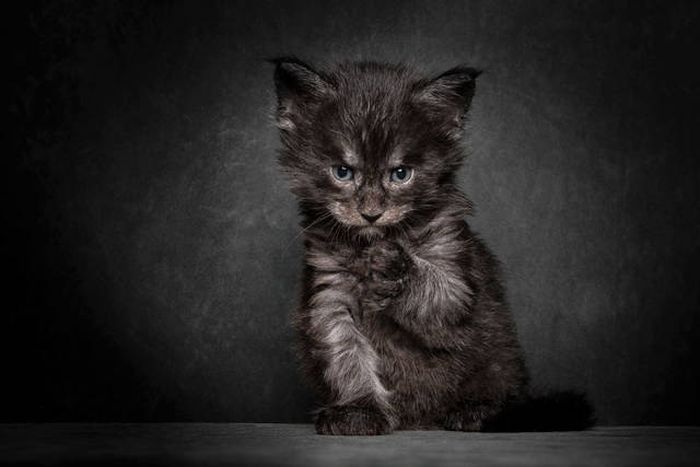|
|
Maine Coon Cat
|
Maine Coons require ample protein and nutrients in their diets. Since they are a large cat breed with high levels of energy, it is best to feed them quality food. Their dietary needs are fulfilled with both dry food and wet food. However, the wet food should be mixed in with the dry food only 2-3 times a week. Feeding the cat with quality dry food can reduce tartar build up on the teeth. Avoid grain based foods. A cat's natural diet does not contain grain and grain can also lead to both obesity and diabetes. Maine Coons should not eat food that lists soy or some grains as the first ingredient on the label. Food that lists meat as the first ingredient is best for the Maine Coon. Cats can develop allergies from plastic bowls, so it is best if they eat out of a glass or stainless steel bowl.
Health
Pet insurance data obtained from a study during years 2003–2006 in Sweden puts the median lifespan of the Maine Coon at >12.5 years. 74% lived to 12 years or more and 54% lived to 16.5 years or more. Maine Coons are generally a healthy and hardy breed and have adapted to survive the New England climate. The most severe threat is feline hypertrophic cardiomyopathy (HCM), the most common heart disease seen in cats, whether pure bred or not. In Maine Coons, it is thought to be inherited as an autosomal dominant trait. Middle-aged to older cats as well as males are thought to be predisposed to the disease. HCM is a progressive disease and can result in heart failure, paralysis of the hind legs due to clot embolization originating in the heart, and sudden death. A specific mutation that causes HCM is seen in Maine Coons for which testing services are offered. Of all the Maine Coons tested for the MyBPC mutation at the Veterinary Cardiac Genetics Lab at the College of Veterinary Medicine located at Washington State University, approximately one-third tested positive. Not all cats that tested positive will have clinical signs of the disease and some Maine Coon cats with clinical evidence of hypertrophic cardiomyopathy test negative for this mutation, strongly suggesting that a second mutation exists in the breed. The HCM prevalence was found to be 10.1% (95% CI 5.8 -14.3 % ) in this study.
|
|









